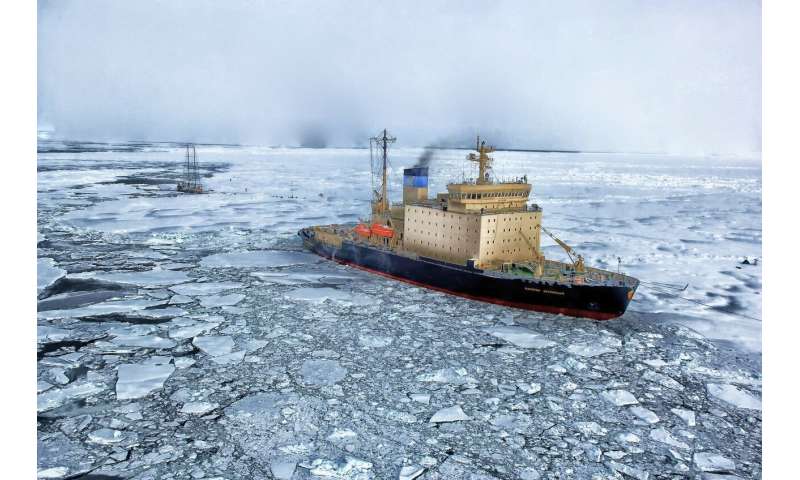Best of Last Week – Regime shift in Arctic Ocean, COVID-19's impact outside of lungs, SARS-CoV-2 spreads 10 meters

It was a good week for Earth science as a team at Stanford University discovered a 'regime shift' happening in the Arctic Ocean—blooms of phytoplankton have drastically altered the Arctic's ability to transform atmospheric carbon into living matter. Also, a team with members from the U.S., the U.K. and Canada observed the first direct evidence of ocean mixing across the Gulf Stream—and it could have important implications for weather, climate and fisheries. And a combined team from CNRS and the University of Poitiers solved the mystery of the dead-water phenomenon—where ships are sometimes mysteriously unable to move forward due to an odd ocean phenomenon.
In technology news, a team at Rutgers University used astrocytes to change the behavior of robots controlled by neuromorphic chips—the other type of brain cells have only recently been found to play an important role in brain function. Also, a German company called Festo announced that it had created bionic birds—lifelike robotic birds that are guided by an ultra-sideband radio system. And a team at the Cockrell School of Engineering at the University of Texas at Austin developed a new room-temperature liquid-metal battery that they claim could be the path to powering the future.
In other news, an international team of medical experts gave the first comprehensive review of COVID-19's effects outside of the lungs. They include thrombotic complications and impacts on other organs. Also, an international team of researchers found evidence showing that Polynesians and Native Americans had made contact before the arrival of Europeans—their genetic study suggested Polynesians had made their way to what is now Colombia. And a team at University College London found that neurological complications of COVID-19 can include delirium, brain inflammation, stroke and nerve damage.
And finally, if you are like billions of others the world over looking to reduce your chances of being infected with the SARS-CoV-2 virus, you may want to check out the results of a study conducted by an international team of researchers—they found that COVID-19 can spread 10 meters or more via breathing.
© 2020 Science X Network